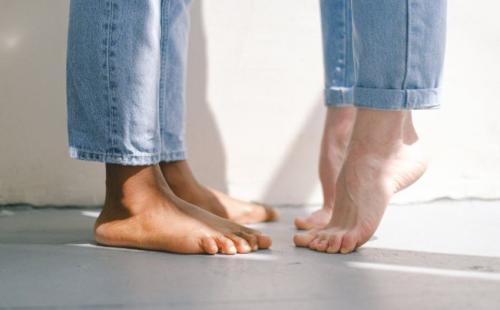The Best Way to Care for Blisters

Nobody likes to get blisters, especially after a long day of
physical activity. Unfortunately, everybody's bound to experience blisters
multiple times in their lifetime. The very best way to treat blisters is to
prevent them from happening in the first place. The second-best way is to apply
first aid and follow the recommendations of medical experts.
How to Care for Blisters
Taking active steps to prevent blisters from forming is the
very first line of defense against this uncomfortable and inconvenient skin
condition. To do that, it's vital to understand what blisters are and how they
form on people's bodies.
What is a Blister
Also known as "vesicles," blisters are simply
sections of raised skin filled with fluid. They form when layers of skin
separate and form a fluid-filled cushion as a result of excessive friction,
burns, freezing, or infection. When this occurs, the body defensively produces
blisters to protect underlying flesh from additional trauma.
While most people are used to the idea of getting blisters
on their feet, they can develop anywhere on the body where there is skin. In
general, blisters fall under one of three categories:
- Friction
blister-caused by repetitive chafing or irritation
- Heat
blister-forms immediately or days after a burn, depending on severity
- Blood
blister-forms when broken blood vessels fill the blister with blood rather
than fluid
Blisters can become painful, irritated, itchy, or infected,
and not much can be done until they completely heal. Therefore, it's in
everybody's best interest to prevent them by planning ahead.
Preventing Blisters
The most common type of blister is the friction blister.
Moisture can increase chafing and friction, so choose clothes and socks that
are loose-fitting and made from moisture-wicking materials. Shoes should fit
well without being too tight, and socks should be worn for extra cushioning and
protection. People who get blisters often might even want to preemptively apply
bandages to the areas that are prone to forming blisters, such as the balls of
the feet, ankles, palms, or fingers.
Sun protection, such as sunblock, hats, and shade, can do
wonders for preventing heat blisters. Practice common sense and vigilance
around extreme heat sources, like campfires and stovetops. Blood blisters,
which usually form when something pinches the skin, can be staved off with
protective clothing and gloves.
Treating Blisters
Blisters usually heal on their own in one to two weeks.
Until then, doctors recommend keeping the blister clean and dry. Always cover
them with a clean dressing, which will protect the raw skin as it heals. It's
usually best to avoid draining the fluid from the blister unless it's
causing significant discomfort.
How to Drain a Blister Safely
- Wash
hands
- Swab
blister with iodine or hydrogen peroxide
- Sterilize
a sharp needle with rubbing alcohol
- Carefully
pierce the edge of the blister (avoid piercing the top)
- Drain
fluid, leave overlying skin undisturbed
- Apply
ointment and clean dressing, monitor for signs of infection
When to See a Doctor
While most blisters go away on their own without medical
intervention, there's always a risk of infection anytime an opening form in the
skin. Swelling, extreme pain, and pus are all signs of an infected blister,
which should be looked at by a doctor as soon as possible. Blisters that show
no signs of improvement or take significantly longer to heal may indicate an
underlying medical condition, which should also be evaluated by a doctor.
There’s an easy guide to blisters. Make sure to do what you
can to spare your feet the problems by buying the right shoes, like these women’s
sneakers in Australia.
Post Your Ad Here
Comments